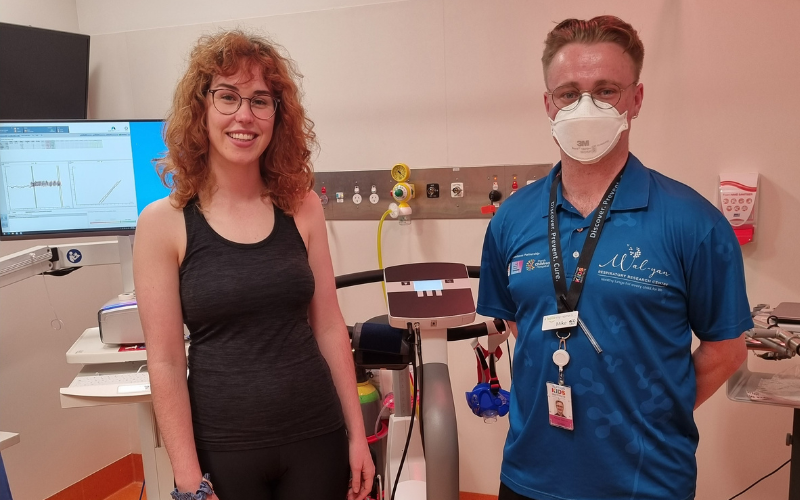Search
Showing results for "early lung health"

News & Events
Thumbs up from first preterm study participant to use new lung function testing equipmentNatasha, who is a participant in the West Australian Lung Health in Prematurity (WALHIP) study, this week became the first person to receive a lung health assessment using new state-of-the-art lung function testing equipment at Perth Children’s Hospital.
Research
Oscillometry and spirometry are not interchangeable when assessing the bronchodilator response in children and young adults born pretermThe European Respiratory Society Oscillometry Taskforce identified that clinical correlates of bronchodilator responses are needed to advance oscillometry in clinical practice. The understanding of bronchodilator-induced oscillometry changes in preterm lung disease is poor. Here we describe a comparison of bronchodilator assessments performed using oscillometry and spirometry in a population born very preterm and explore the relationship between bronchodilator-induced changes in respiratory function and clinical outcomes.
Research
Development of a Symptom-Based Tool for Screening of Children at High Risk of Preschool AsthmaDespite advances in asthma therapeutics, the burden remains highest in preschool children; therefore, it is critical to identify primary care tools that distinguish preschool children at high risk for burdensome disease for further evaluation.
Research
Computational fluid-particle dynamic and pharmacokinetic assessment of electronic cigarette aerosols for improved understanding of their potential to impact healthThis project will use computational methods to assess the deposition of e-cigarette aerosols in the lungs, and the distribution of chemicals within e-cigarette aerosols throughout the body.
Research
Cystic FibrosisCystic fibrosis (CF) is the most common chronic, life-shortening genetic condition affecting young Australians. There is no cure but researchers are working to prevent the onset of lung disease.
Research
Protocol for a study of the psychosocial determinants of health in early childhood among children with cystic fibrosisThis protocol outlines the study aims to investigate the causal effect of psychosocial functioning, parenting and attachment on physical health outcomes in...
Research
Defining the appropriate waiting time between multiple-breath nitrogen washout measurementsThis letter addresses the recommendations by the American Thoracic Society & European Respiratory Society in 2005, that patients must wait 15-60mins between...
Research
Risk factors for poorer respiratory outcomes in adolescents and young adults born pretermThe respiratory outcomes for adult survivors of preterm birth in the postsurfactant era are wide-ranging with prognostic factors, especially those encountered after the neonatal period, poorly understood.

News & Events
Preterm respiratory researchers share what World Prematurity Day means to themPreterm researchers Dr Shannon Simpson (left) and Professor Jane Pillow (right) with Tony Sparks WA chairperson Amber Bates.
Research
WALHIP Exercise StudyWhen babies are born early or ‘preterm’ their tiny bodies are put under a lot of stress that can result in health problems in later life.
